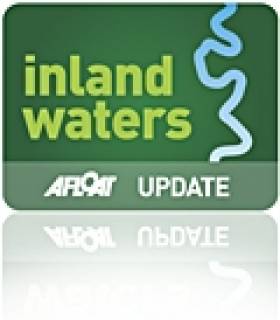Displaying items by tag: Trap and Transport
Minister Experiences Eel Conservation First-Hand
#INLAND WATERS - The European eel population is highly endangered and conservation of this species is a priority for Minister Fergus O’Dowd, who recently visited one of the ESB Trap and Transport sites in Athlone, Co Westmeath.
The minister saw first-hand the silver eel operation that involves the capture of the fish at strategic locations upstream in the Shannon catchment and their subsequent release downstream of Parteen Weir in order to aid their passage and bypass the hydropower generating facility.
Minister O’Dowd assisted the fishermen, Brian and Brendan Connell, in the weighing of the silver eels and loading them into an oxygenated tank for transportation by the ESB to Parteen.
“Eels are protected under EU directive,” said the minister. “I am satisfied that Ireland is addressing its obligations under the directive by ensuring the safe passage of eels past Parteen Weir as they travel onward to the Sargasso Sea to spawn.
"I value highly the work done by ESB on the Trap and Transport initiative and the co-operation with IFI (Inland Fisheries Ireland). I saw at first hand how ESB, as a major commercial State company, continues to take very seriously its responsibilities in this area.”
The National and River Basin District Eel Management Plans specify actions that include closure of eel fisheries and markets, mitigation of adverse effects of hydropower generation facilities, improvement of water quality and bio-security issues.
The overall objective is to increase the biomass of spawning eel leaving Irish waters as the stock has depleted to a dangerous level.
Inland Fisheries Ireland monitors this ESB-sponsored operation throughout its duration, checking weigh and condition of the fish.






























































